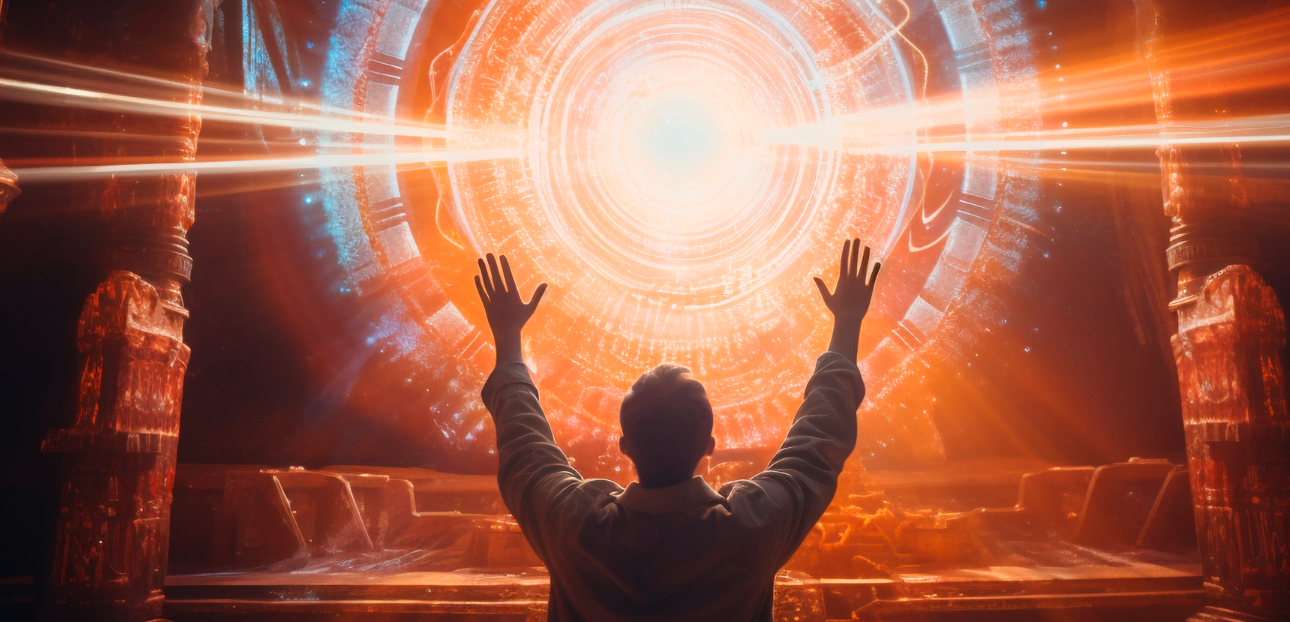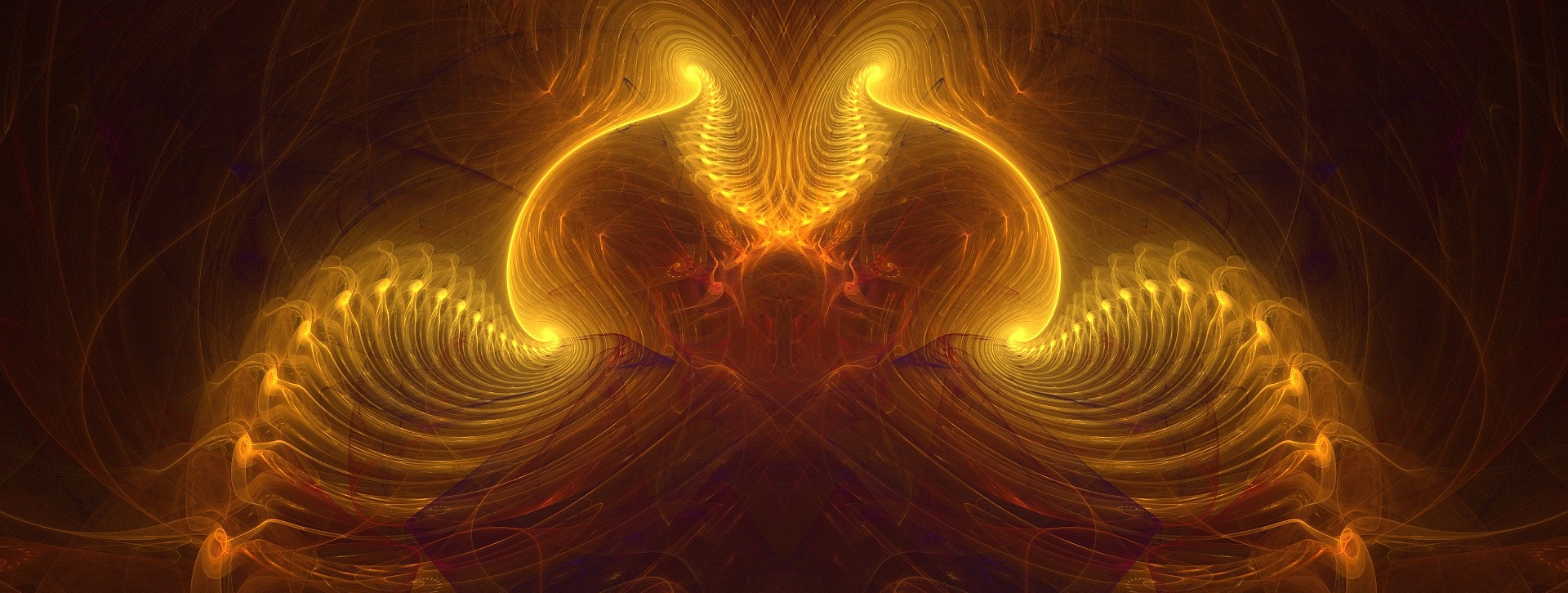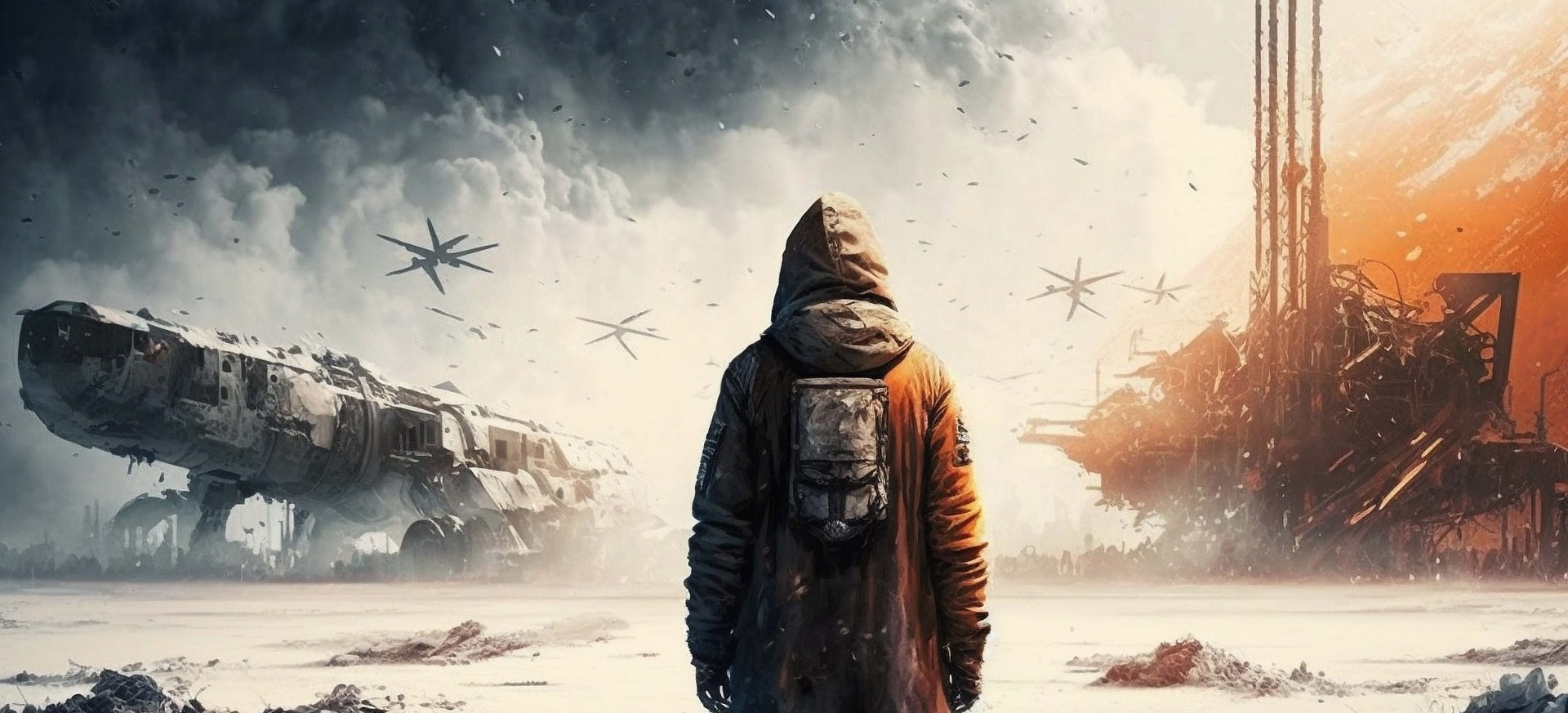Discovering Mythology and Mysticism Through Sci-Fi Stories

Discovering mythology and mysticism through sci-fi stories opens up a universe of possibilities. Science fiction books are one of those kinds where ancient myths are entwined in futuristic tales. It leads readers on a spiritual journey into the celestial terrain or heavenly discoveries. More often than not, these stories are themselves allegories of the eternal search of mankind in the stars- the meaning quest.
Be it exploring the mystery of alien gods or looking for some archaic knowledge in a faraway galaxy. The amazing mingling of mysticism and mythology here makes us ponder deeper connections between the past and future. Take the ride through this awesome collection of tales that will let you witness the connection between the mythical and the cosmic.
Search
Table of Contents
Key Takeaways: Insights on the Role of Mythology in Sci-Fi
- Myth incorporates universal themes of creation, fate, and human purpose within sci-fi.
- Myth brings richness and resonance to the future. At the same time, they are rooted in ageless, timelessly archetypical genres.
- Several sci-fi tales rehash ancient myths and retell them in new contexts.
- Cosmic journeys in sci-fi often serve as a standard of comparison for the hero’s journey. Core narrative structures rooted in mythology.
- Sci-fi stories employ mythic motifs to answer spiritual and existential questions about life.
- Often, alien worlds in sci-fi become allegories of the human mythologies. The belief systems provide a fresh viewpoint.
- Sci-fi combines mythology and science to stretch the imagination. In comparison, being anchored in the vast human heritage of storytelling.
Top 5 Mythology and Mysticism Based Sci-Fi Books
Science fiction that forges the link between myth and mysticism tells stories with a unique flavor. Herein lies the baptism into ageless wisdom while gazing toward the future. These narratives take readers on spiritual journeys. It delves into cosmic discovery with a reflective gaze toward humanity’s role in the universe. So, employing ancient myths in cutting-edge concepts, top authors of science fiction with mythical and spiritual depth present their narratives. These conceptions then push the boundaries of imagination. These five books are the best masterpieces. They will surely leave an indelible mark in the minds of readers, enjoying a journey on both intellectual and spiritual sides.
1. Cosmic Encounter by David Giarrusso
Author David Giarrusso, the best author, wrote this masterpiece, Cosmic Encounter. The book is excellent in combining mythical and spiritual depth with visionary sci-fi. Giarrusso is a great figure in the genre and, apart from all this, captivates readers through the view of ancient wisdom in a modern context.
The book offers a spiritual journey with cosmic discoveries through a protagonist in search of answers beyond time, space, and dimensions. Given its foundation in ancient myths, this tale adds an extra meaning. The book makes an excellent example of how mythology works in science fiction. Giarrusso is one of those most compelling voices in the genre, with his elaborate world-building and narrative prowess.
2. Dune by Frank Herbert
The science fiction epic Frank Herbert’s Dune stands as a milestone in being mythologically and mystically richly modeled. Born on the desert planet Arrakis, politics and prophecy construct the tortuous pathway for Paul Atreides to eventual spiritual awakening. Herbert’s detailed imaginings take their roots in Middle Eastern culture and the ecology of the world to form an ancient future world full of wisdom and speculation.
The mix of Bene Gesserit sisterhood, Fremen culture, and vision of the prophetic hero blends into a story meant to interrogate the issues of destiny, religion, and humankind.
3. Hyperion by Dan Simmons
Dan Simmons’ Hyperion is built along those lines historically, incorporating myth and mystery into a multi-narrative form. It tells the story of seven pilgrims, modeled after The Canterbury Tales, who travel together to see the mysterious Shrike. Each person’s narrative is a different tale of faith, sacrifice, and transcendence–an exploration of aspects of the spiritual struggles of humanity.
Simmons draws heavily on ancient mythology, religion, and philosophical tradition and produces a world with highly varied depths to challenge his readers not just about what divinity is but also what it might mean to each being.
4. The Left Hand of Darkness by Ursula K. Le Guin
Formulated into a narrative that speaks of an envoy sent to Gethen, Ursula K. Le Guin’s The Left Hand of Darkness directs its exploration of gender and identity, especially towards some measure of spirituality.
The novel is framed around Taoism, where duality and harmony become, for humanity, an intensive and quite deep meditation on existence. The myth-making world-building with the sensible raising of religions make this great sci-fi classic very much a nest of mystique.
5. A Canticle for Leibowitz by Walter M. Miller Jr.
A Canticle for Leibowitz transports us into a future that has survived the apocalypse and brings to the fore the cyclical nature of human history: a story of a monastic order preserving knowledge of a long-lost civilization while weaving in religion with science through a tale of survival and renewal.
The construction Miller has used, religion as he understood it and the surrounding ritual, as a framework through which one might view human spiritual resilience, makes this book timeless in the exploration of faith, knowledge, and redemption
Why Sci-Fi is a Powerful Tool for Exploring Mythology and Mysticism
Science fiction is perfectly situated to tether ancient wisdom in mythical worlds with futuristic explorations. It can serve, therefore, as an instrument for discovering mythology and mysticism. Reinterpreting old myths in new cosmic settings enables reading about personal spiritual journeys and cosmic discoveries in sci-fi books transforms traditional views, challenge beliefs, and ponder, by such important subject matter, life’s moral and universal issues with speculative science and archetypal narrative approaches resonating profoundly with the human experience.
Such richly imagined worlds, these advanced civilizations, form parts of an imagined fertile ground for a reinterpretation of mythology and exploring mysticism well beyond culture and time. Alien gods, mystical forces, and even interdimensional journeys are just some of the ways this genre enhances those themes so central to mythology, namely transformation, sacrifice, and enlightenment.
The mythical depth and the speculative nature of science fiction enrich it with layers of meaning that serve to complement the entire theme. One finds such types of stitching in the texts of his time, for instance, in Cosmic Encounter or Dune, wherein the reader finds prophecy, destiny, and evolution of the spirit cut across futuristic narratives.
Not only sci-fi entertains but even inculcates into the minds of its readers the eternal search for the meaning of life and its communion. Through the investigation of mythology and mysticism, however, the genre transcended itself and became deeper merely as a medium for understanding of past, present, and possible futures.
Conclusion: The Power of Mythology and Mysticism in Sci-Fi
Discovering mythology and mysticism through sci-fi stories is perhaps the deepest way one can grapple with existence and humanity’s role in the cosmos. Ancient wisdom and futuristic vision mix to cross borders, which in itself inspires awe and contemplation in narratives. Such stories reflect mankind’s spiritual journeys and cosmic discoveries, offering insights into universal truths and eternal questions.
This very fact about the genre, the ability to reimagine myths and delve into mystical themes, adds to the potency of its storytelling, making it indeed well-equipped for profound meanings. Interstellar voyages, hostilities with strange alien civilizations, and philosophical dilemmas present the theater of science fiction, where the mythical past connects with an imaginary future and allows one to dream, question, and find meaning in the unknown.
Created By: David Giarrusso
Recommended Blogs
 Blogs
Blogs The Intersection of Sci-Fi, Spiritual Awakening, and Cosmic Mysteries!
The Intersection of Sci-Fi, Spiritual Awakening, and Cosmic Mysteries! Science fiction has always been more than escapism—it is a lens...
 Blogs
Blogs Courage in the Face of the Unknown | Finding Courage and Self-Discovery in Sci-Fi Adventures
Courage in the Face of the Unknown | Finding Courage and Self-Discovery in Sci-Fi Adventures Space, time, and all the...
 Blogs
Blogs What is the Role of Cosmic and Spiritual Themes in Modern Science Fiction Books?
What is the Role of Cosmic and Spiritual Themes in Modern Science Fiction Books? Science fiction has always been a...
 Blogs
Blogs Discovering Mythology and Mysticism Through Sci-Fi Stories
Discovering Mythology and Mysticism Through Sci-Fi Stories Discovering mythology and mysticism through sci-fi stories opens up a universe of possibilities....
 Blogs
Blogs How Can Spiritual Lessons from Mythological Adventures in Sci-Fi Be Inspiring?
How Can Spiritual Lessons from Mythological Adventures in Sci-Fi Be Inspiring? Science fiction is often celebrated for its imaginative exploration...
 Blogs
Blogs Exploring the Role of Ancient Wisdom in Modern Science Fiction | Get Timeless Insights!
Exploring the Role of Ancient Wisdom in Modern Science Fiction | Get Timeless Insights! The Role of Ancient Wisdom in...